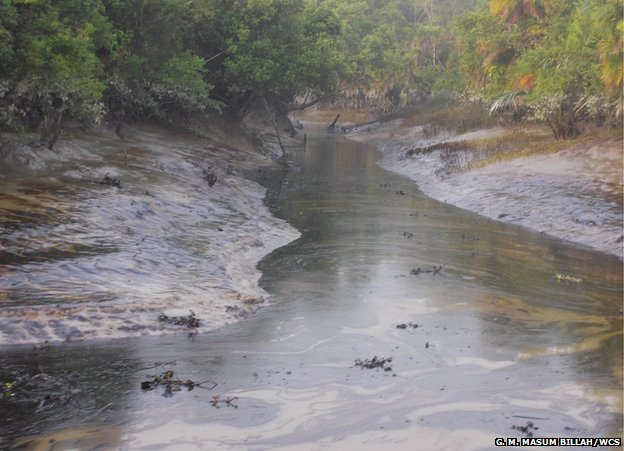Sundarbans, Bangladesh, Bangabandhu
On 15 November 2007 and 25 May 2009, the Sundarbans then too had protected the country from cyclones Sidr and Aila.
In 2007, cyclone Sidr had damaged almost 25 per cent of the Sundarbans. In a series by Iftekhar Mahmud published in Prothom Alo at the time, it was said that the Sundarbans would survive if not disturbed. The forest department decided not to cut down the trees of the forest and within a year it was back in all its glory.
Quite some time ago I had written a poem in Prothom Alo about the Sundarbans. I received an e-mail from a certain Zia Ziabul Karim about the poem. He was a law student at Chittagong University.
Just a day before 29 April 1991 Zia had been at his grandfather’s home in Banshkhali. But fate seemed to have drawn them back to their own home in Kutubdia. The sky had been overcast since the morning with continuous light rainfall. Then in the evening the wind increased in velocity and nature turned furious. Zia had been just four years old at the time and was petrified. He and his four siblings huddled in their mother’s arms. There was an ear-splitting noise and water rushed forth. Their father quickly carried them all to the roof of the house. In his e-mail Zia recalled, “Me, my one-and-a-half-year-old brother Rabiul and three-year-old sister Rahima clung to our mother. My other two brothers were with our father.” The rain was torrential, piercing their skin like needles. Water gushed forth with a tremendous noise, the waves from the sea approaching like mountains of water. There was thunder all around. Many people clambered from the roofs to the trees nearby.
Zia wrote, “We couldn’t manage to climb to the trees and our asbestos roof broke up easily. We just hung onto the wooden frame to save ourselves. We were being plunged in and out of the water. My father had put my small brother and sister into a trunk and grasped on to it. We were wondering if we could manage to reach the closest trees but suddenly a bamboo fence came hurtling along and fell upon us. Everything crashed and if felt that we were finished. About 20 minutes later my father found me clinging to his neck and managed to climb to a tree with me. I was numb with the cold. My father pulled me inside his sweater and fought against the onslaught of nature. I fell asleep against his body and woke in the morning.
“We later found my two older brothers, but we never saw my young brother, sister and mother again. I later heard my mother had been pregnant. I remember my mother hazily. Maybe it is better that I don’t remember her two well, she had the most loving countenance in the world.
“I don’t have any picture of my mother, no significant memory. I don’t know how it feels to sleep in a mother’s arms, how it feels to call out ‘Ma! Ma!’ Memories rush forward every 29 April and I think so much of my mother then, my mother whose face I can’t recall.”
I published this letter on 19 December 2014 in Prothom Alo.
The Sundarbans is like a mother to us. It takes all the assaults upon itself just to save us.
Bangabandhu had been well aware of this role of the Sundarbans. He understood it and made us aware about this too.
On 16 July 1972 he inaugurated the tree plantation week at the race course grounds. He said, “I recall communicating with the government around 1967-68 and telling them that they must protect the Sundarbans or the country would not survive. They said, how can we stop cutting down the trees? We will lose around one and a half crore taka in revenue. I said we didn’t plant trees to create the Sundarbans, it is a gift from nature to protect the country. It is a barrier along the Bay of Bengal. Unless this is protected, one day parts of Khulna, Barisal, Patuakhali, Comilla will all be washed away and will become islands like Hatia and Sandwip. If the Sundarbans are destroyed, there will be no way to save ourselves from the sea. Kindly do not destroy this Bengal for the sake of one and a half crore taka. They did not heed these words as they had no love for us. They wanted our trees, our resources, our raw material. They were intent on looting.”
He called upon all to plant trees, fruit trees, to tend to the trees. If you listen to his speech online, love surges up for the Sundarbans, for Bangabandhu, for the country.
May the Sundarbans live and keep Bangladesh alive. The frequency of cyclones has increased and climate change poses as a threat to Bangladesh. This is reality. Bangladesh is the least to blame for climate change, yet the rising levels of the sea and frequent cyclones have made it the worst victim.
Bangladesh is making all sorts of preparations for climate change. The people here have an extraordinary resilience. Nature, rivers, the environment, forests, hills, croplands, all must be protected in the march for development. We must remember Bangabandhu’s words, that unless the Sundarbans are protected, Bangladesh cannot survive.

